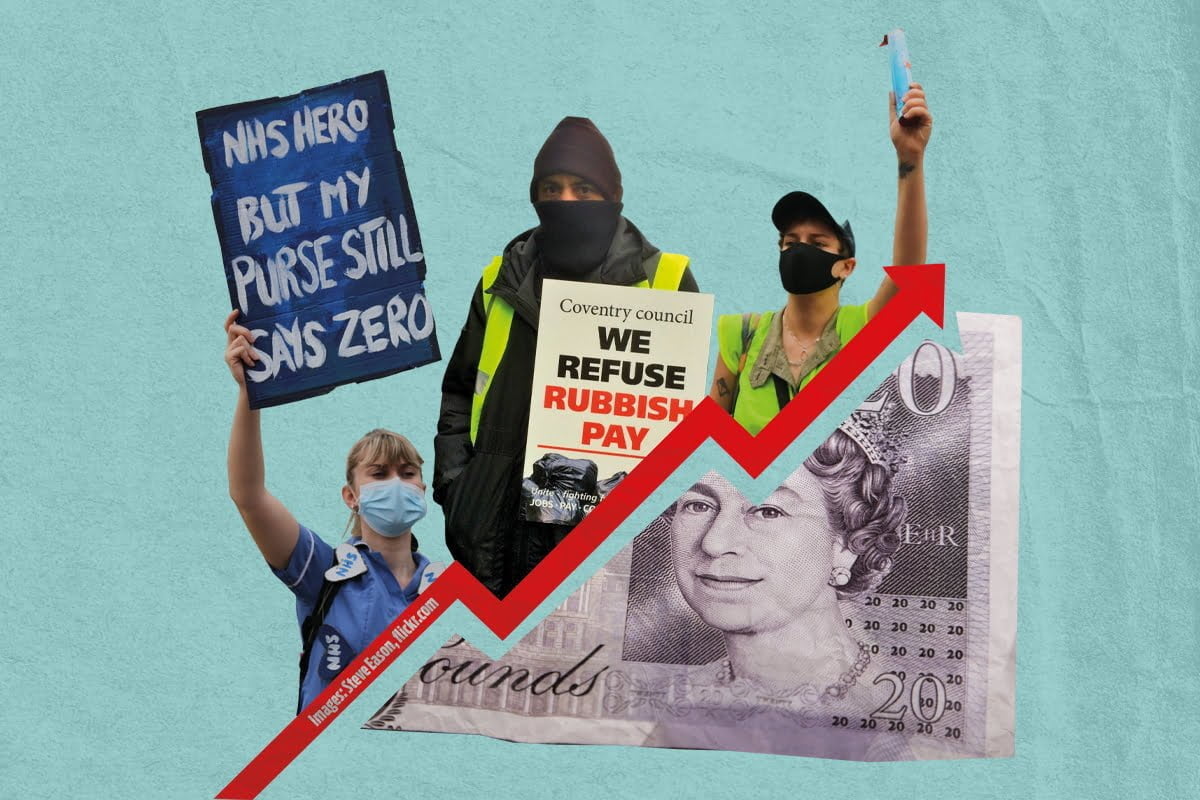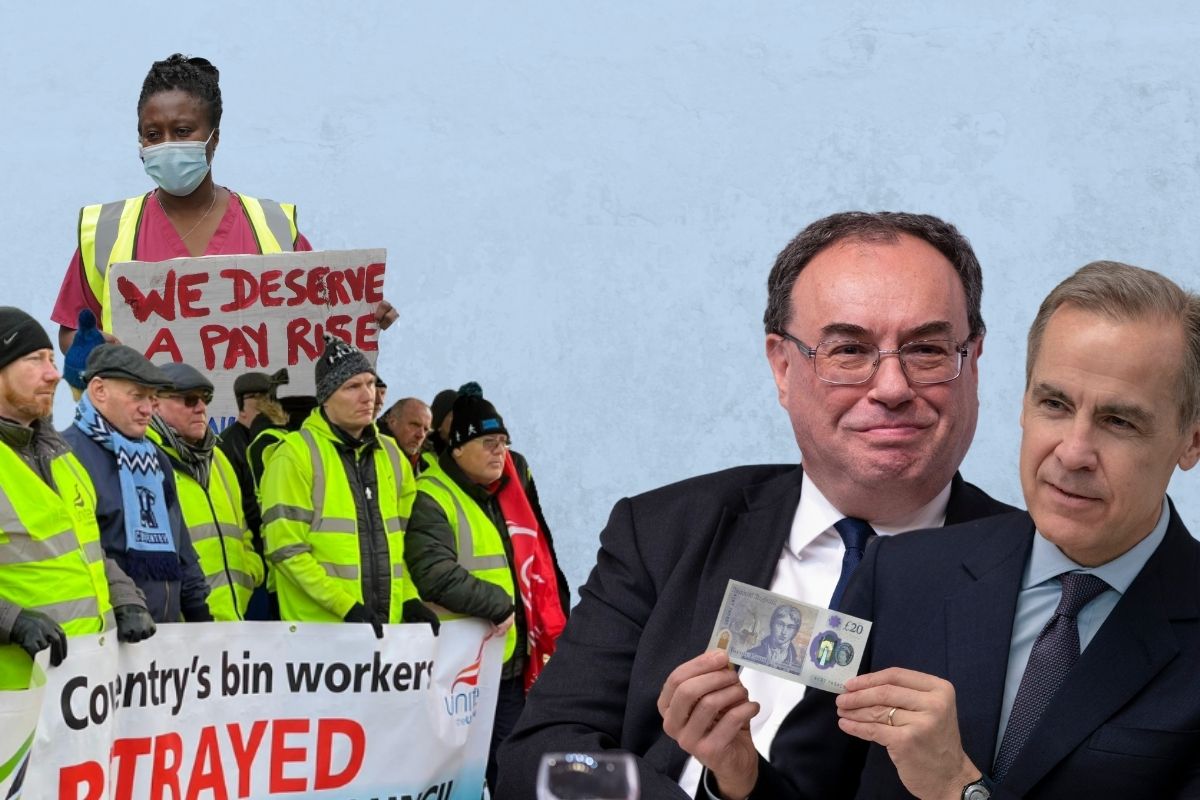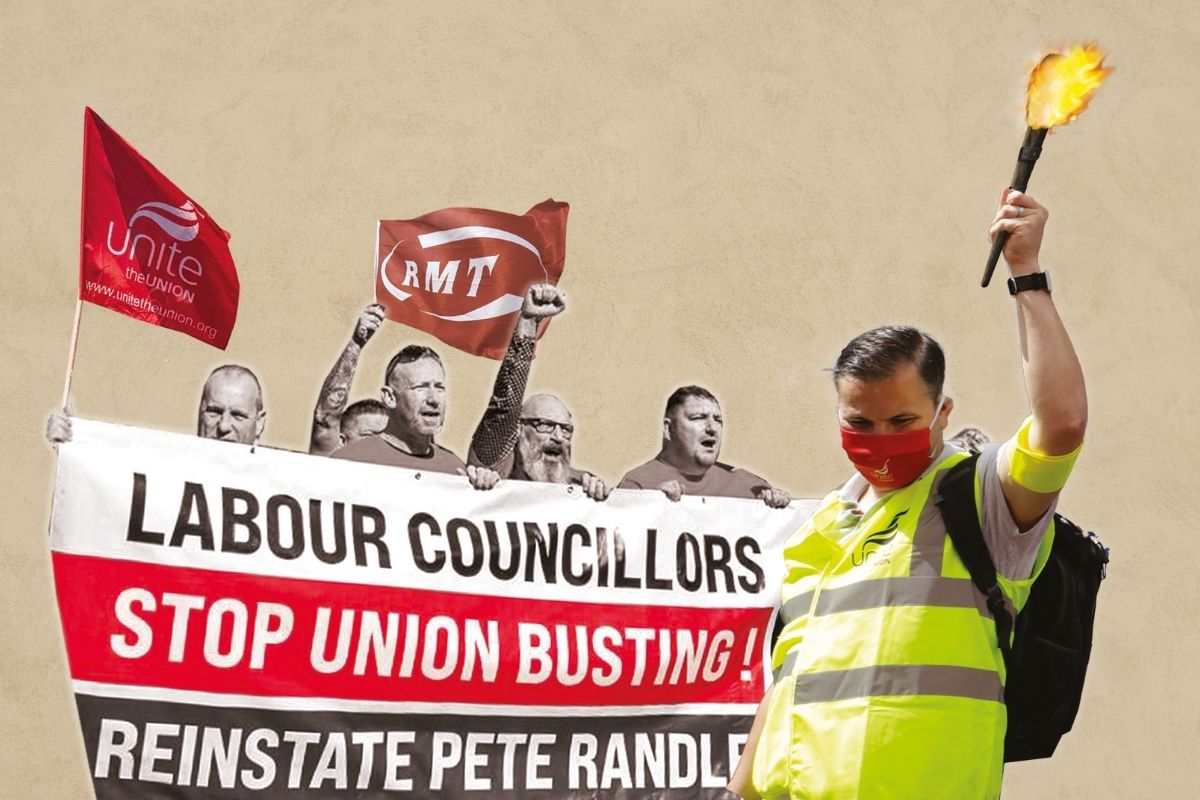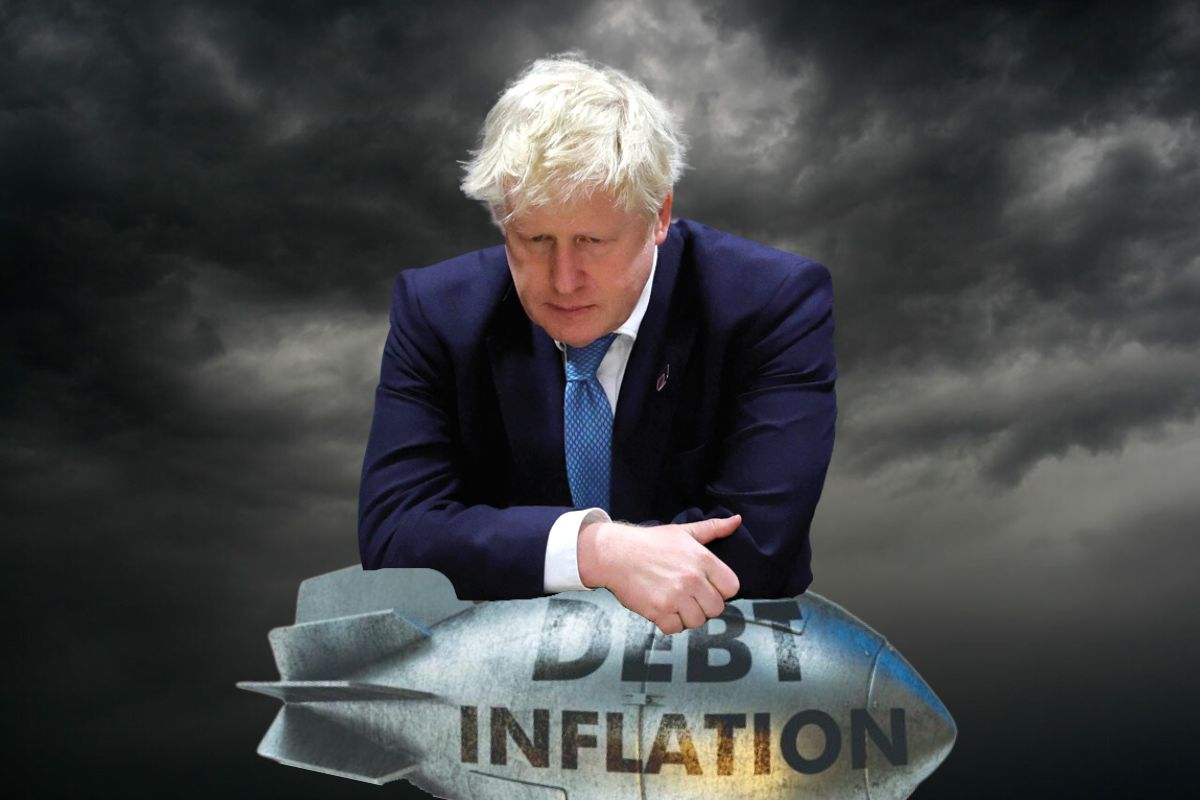British capitalism is facing a perfect storm. This is not just the assessment of the Marxists, but also of the OECD, a club of advanced capitalist countries.
Surging inflation; rising interest rates; falling real incomes; supply-chain disruption; labour shortages; not to mention the shock of war and disease: all of these – and more – are hammering the UK economy, blow after blow.
As a result, the OECD forecasts that Britain will see the second slowest economic growth of any of the G20 nations. Only Russia, hurt by western imperialism’s sanctions, is predicted to be worse hit.
Whilst inflation is estimated to remain at an average of 7.4% next year, the economy is expected to grind to a halt: a deadly combo referred to by mainstream economists as ‘stagflation’.
Doom and gloom

But this is not a mere prophecy of doom. Recent figures show that the British economy shrank by 0.3% in April, driven by contractions in construction, manufacturing, and services.
And workers are already facing a catastrophe, with the costs of energy, rent, food, and fuel all soaring, whilst pay fails to keep up.
Petrol prices, for example, have climbed to a 17-year high. For the first time ever, filling up a typical family car will now set drivers back at least £100.
As a result, petrol station managers are reporting a 39% increase in forecourt fuel theft since January. Meanwhile, according to one senior analyst at data firm OilX, “the [oil] refiners are printing money at the moment…more than they have ever witnessed.”
Who’s to blame?

The ruling class clearly has no solutions to this disaster. Bank of England governor Andrew Bailey, for example, asserted that he and other policymakers were “helpless” in the face of a global maelstrom.
Instead, both Bailey and – more recently – Boris Johnson have scandalously blamed workers for fuelling inflation by instigating a ‘wage-price spiral’.
Scapegoating striking RMT members for inflation will fool nobody, however. Everyone can see that it is workers who are struggling to maintain their purchasing power as prices skyrocket. If anything is spiralling, it is the profits and pay of the bankers and bosses.
If the Tories are looking for someone to blame, they should look no further than their own degenerate leader. The corrupt, self-seeking Prime Minister has done more than anyone to damage the prospects of British capitalism.
After all, Boris’ Brexit belligerence and opportunistic warmongering in Ukraine have certainly helped to fan the flames of inflation: raising the cost of imports; cutting off the supply of key commodities; and wasting public money on military spending.
Class war

Rebellious Tory MPs, ravenous for more ‘red meat’, are putting pressure on Johnson to address the cost-of-living crisis with a new wave of tax cuts. But it is corporate bosses and billionaires, not ordinary people, who are most likely to benefit from these.
Starmer’s Labour, meanwhile, have offered no real alternative – even flip-flopping on their own meek demand for a windfall tax on the super-profits of the energy monopolies. If anything, the party’s leadership is looking to outflank the Tories when it comes to supporting big business.
In the absence of any political solution, as the crisis deepens and inflation bites, workers are increasingly taking matters into their own hands, organising and striking back.
From the railways to Royal Mail; from cleaners to civil servants; and from university lecturers to school teachers: workers across the board are voting and mobilising to take militant action. And this is only the beginning.
For Boris Johnson and the ruling class, this means further headaches to contend with. For the left and labour movement, this means preparing for war – class war.






